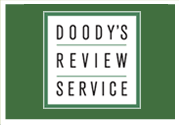MLA List of Professional Competencies for Health Sciences Librarians*
- Understand the health sciences and healthcare environment and the policies, issues, and trends that impact that environment.
- Know and understand the application of leadership, finance, communication, and management theory and techniques.
- Understand the principles and practices related to providing information services to meet users' needs.
- Have the ability to manage health information resources in a broad range of formats.
- Understand and use technology and systems to manage all forms of information.
- Understand curricular design and instruction and have the ability to teach ways to access, organize, and use information.
- Understand scientific research methods and have the ability to critically examine and filter research literature from many related disciplines.
*http://mlanet.org/education/policy/accessed 11/15/13
The Medical Library Association lists the 7 competencies above for a health sciences librarian. When I graduated from library school in 2002, I could check off 2 of these. Today, I can check all 7.
The journey from 2 to 7 competencies is the story of a librarian’s professional development. Certainly mentors, professional associations, and continuing education play into this process. One aspect of professional development that receives little attention is the art of reviewing books and databases for professional journals. This activity helps you stay current in librarianship and introduces you to topics and resources you may not routinely encounter in your professional environment.
The book reviewer commits to read the material, understand its content, and analyze its value with an article between 250-400 words. Did I mention that you get to keep the book, for free? My library competencies and understanding of the healthcare landscape have been strengthened through this professional activity.
There are two practices for supplying book content to reviewers: an electronic copy of the content and an actual book. My personal preference is to review for journals that allow me to keep the book. I choose book titles that fill a hole in the collection of my institution or, on a personal level, fill a hole in my competency list. When I’m finished with the review, the book becomes part of our circulating collection so it is accessible to others.
There are a couple of ways to get started:
- Check your library school’s listserv or professional listserv such MEDLIB-L. Book editors send out invitations to interested parties this way. Respond to their invitation. You will likely be enthusiastically received by the editor as a participant.
- If a coworker or supervisor is a book review editor for a professional journal, volunteer to participate. Volunteers are always welcomed.
The prospective subject matter takes in all of “libraryland” such as design and space usage, collection development, technical services, access services, management issues in special, academic, and public libraries. A sample from a current selection list has 13 titles to choose from – including library management, nursing management, academic archives, and cultural competency in nursing. The titles are from reputable publishers and current new publications. Request your top 3 titles and, usually, one is sent to the reviewer postage paid. What’s not to like?!
Another avenue for book reviewing is to become a Doody Core Titles selector. It is a more intense activity, focused on a health sciences specialty, and helps the library community when looking for suitable materials for an institution’s audience. Invites are sent out in February to librarians who have participated in the past as well as to librarians who have expressed an interest in working on Doody Core Titles. In addition, participating librarians post invites on a variety of listservs. Up to 3 librarians and a subject specialist evaluate a list of quality titles in an online process, with librarians often covering more than one specialty. All Doody Core Titles selectors get professional certification points toward their AHIP.
These reviewing and publishing activities build your credibility with your customer base, your peers, and your institution’s management. Your evaluation skills are sharpened. Your knowledge of available material remains current and you are supplying an aid for collection development in other audiences.
Your selected title is filling a gap in your institution or your competency list. What’s not to like?!
